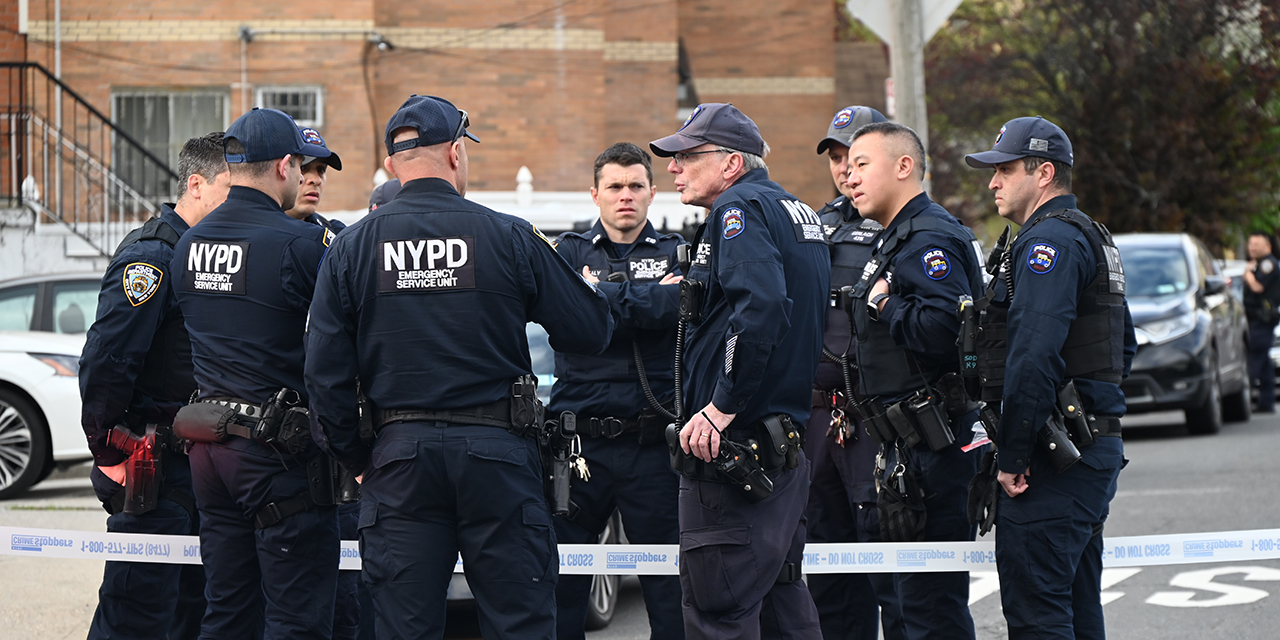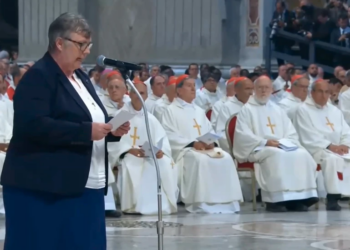
While immigration garnered more media coverage, crime was a major issue in the 2024 election cycle. This was particularly evident in the outcomes of state ballot initiatives and local prosecutorial and mayoral races. During the campaign, Donald Trump repeatedly acknowledged public concerns about rising lawlessness, promising to get tough on crime and “back the blue.” His vocal support for law enforcement and opposition to the Left’s decarceration agenda earned him the backing of rank-and-file officers and the endorsement of the Fraternal Order of Police. As president, he reiterated his commitment to the tough-on-crime approach in a speech to the Justice Department last month. And on Monday, April 28—on the eve of his 100th day in office—Trump took a meaningful step toward making good on his campaign promises with a wide-ranging executive order on policing.
Monday’s order directs executive agencies to shore up America’s police forces. It calls for funding to boost recruitment and retention, enhance training, and expand legal protections for officers facing civil or criminal sanctions for actions taken in the line of duty. It also instructs agencies to pursue harsher penalties for crimes against law enforcement, expand the provision of excess military and national security equipment to local agencies, and invest in correctional security and capacity. Finally, the order directs Attorney General Pam Bondi to bring federal charges against state and local officials who obstruct federal law-enforcement efforts, and to deploy Homeland Security joint task forces formed under an earlier order to assist local cops with their crime-fighting missions.
Finally, a reason to check your email.
Sign up for our free newsletter today.
These steps are encouraging to those who criticized the Biden administration’s soft-on-crime approach and hoped that the Trump administration would address the issues that have made policing less effective.
One of those issues, particularly after the riotous summer of 2020, is low police morale, which has contributed to the recruitment and retention crisis plaguing departments nationwide. The executive order aims to address this by boosting pay and benefits to attract more men and women to policing careers. Additionally, by calling for the provision of excess military resources and the development of best practices and training programs, the administration acknowledges that departments need more than just manpower—they need professional, well-equipped law enforcers.
Another problem is incomplete information. When it comes to controlling crime, there may be no better tool than accurate and timely data. Detailed information about where and when crime occurs is essential to successful policing, which is why Americans should be pleased to see a clause in Monday’s order calling for greater investment in the collection and distribution of crime data.
Many officers I’ve spoken with in recent years have expressed fear that they won’t get a fair shake in courts of law or public opinion if they are involved in a controversial use of force. Some pointed to the 2022 criminal conviction of Terence Sutton, a Washington, D.C. Metropolitan Police Department officer, for the death of a criminal suspect who was struck by a civilian vehicle after running a red light on a moped while fleeing Sutton, who had been trying to pull him over. In January, President Trump gave Sutton an unconditional pardon. Monday’s order, which contained clauses to expand indemnification—the coverage of financial liability in civil cases—and to provide officers with pro bono counsel, sent another signal to cops that the administration has their back.
Much of the harm done to policing has come through federal interventions under Presidents Obama and Biden. These incursions into local policing often took the form of burdensome consent decrees and legal settlements, stemming from pattern-and-practice investigations based on racial disparities in various enforcement measures. Trump’s executive order directs the attorney general to review—with an eye toward modifying, ending, or rescinding—all existing “consent decrees, out-of-court agreements, and post-judgment orders” involving state or local law enforcement agencies.
The racial disparities cited by federal investigations are byproducts of the geographically and demographically concentrated nature of crime. The Trump administration is right to make clear to local law enforcement that they will no longer risk federal sanction for responding to these realities.
Over the last decade, a national narrative has cast police as villains resisting the struggle for justice. The truth is dramatically otherwise: law enforcement is largely composed of heroes who subordinate their own safety to the communities they serve. This disconnect between narrative and reality has contributed to the morale crisis plaguing American policing in the post-Ferguson, post-George Floyd era. For many who wear the badge, Donald Trump’s election last November offered a sign of hope. If his administration follows through on Monday’s order, law enforcement—and the American people—can begin to put this dark chapter behind them.
Photo by Kyle Mazza/Anadolu via Getty Images
City Journal is a publication of the Manhattan Institute for Policy Research (MI), a leading free-market think tank. Are you interested in supporting the magazine? As a 501(c)(3) nonprofit, donations in support of MI and City Journal are fully tax-deductible as provided by law (EIN #13-2912529).
Source link

















